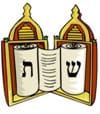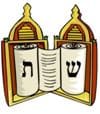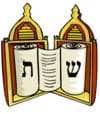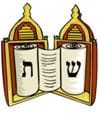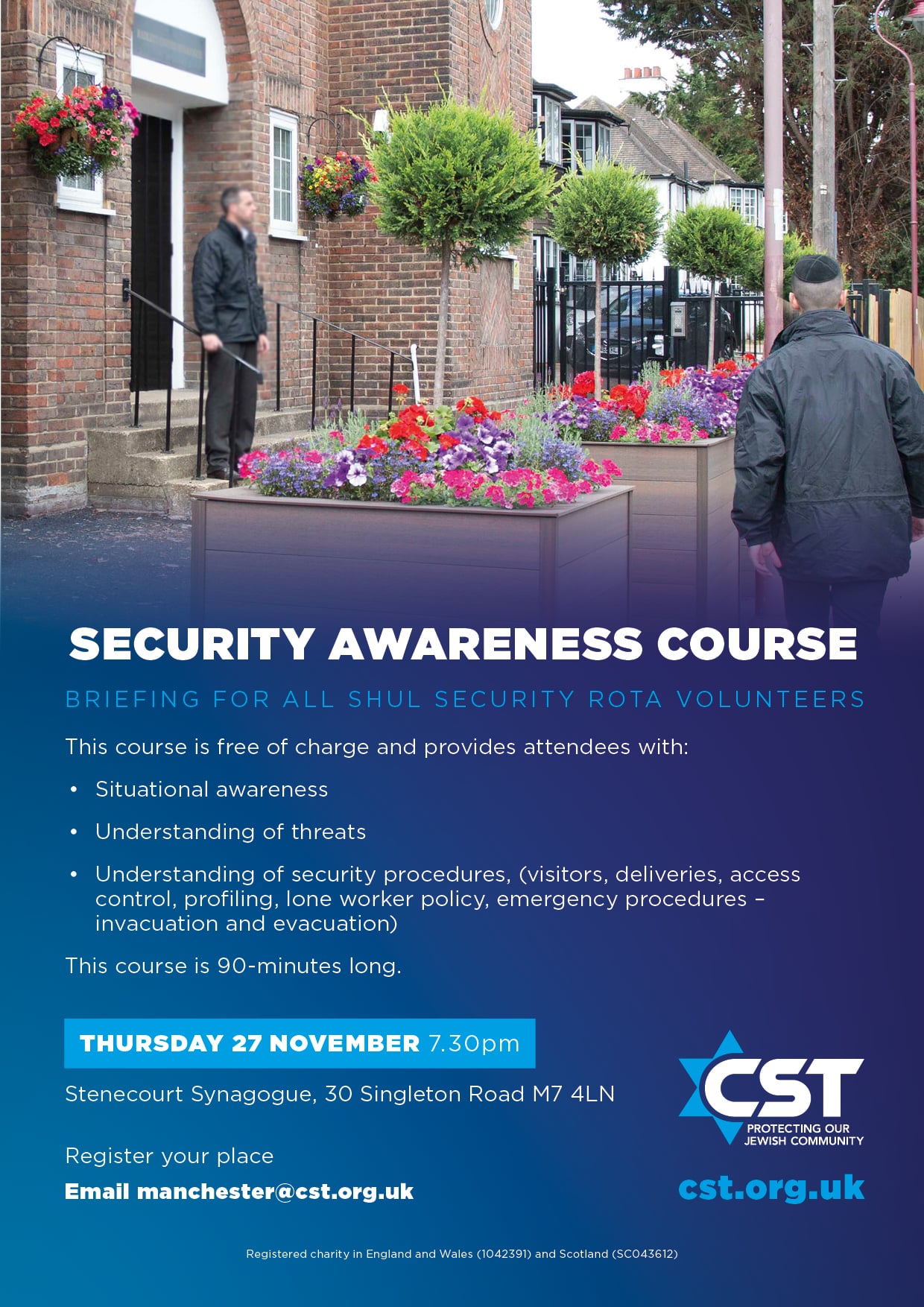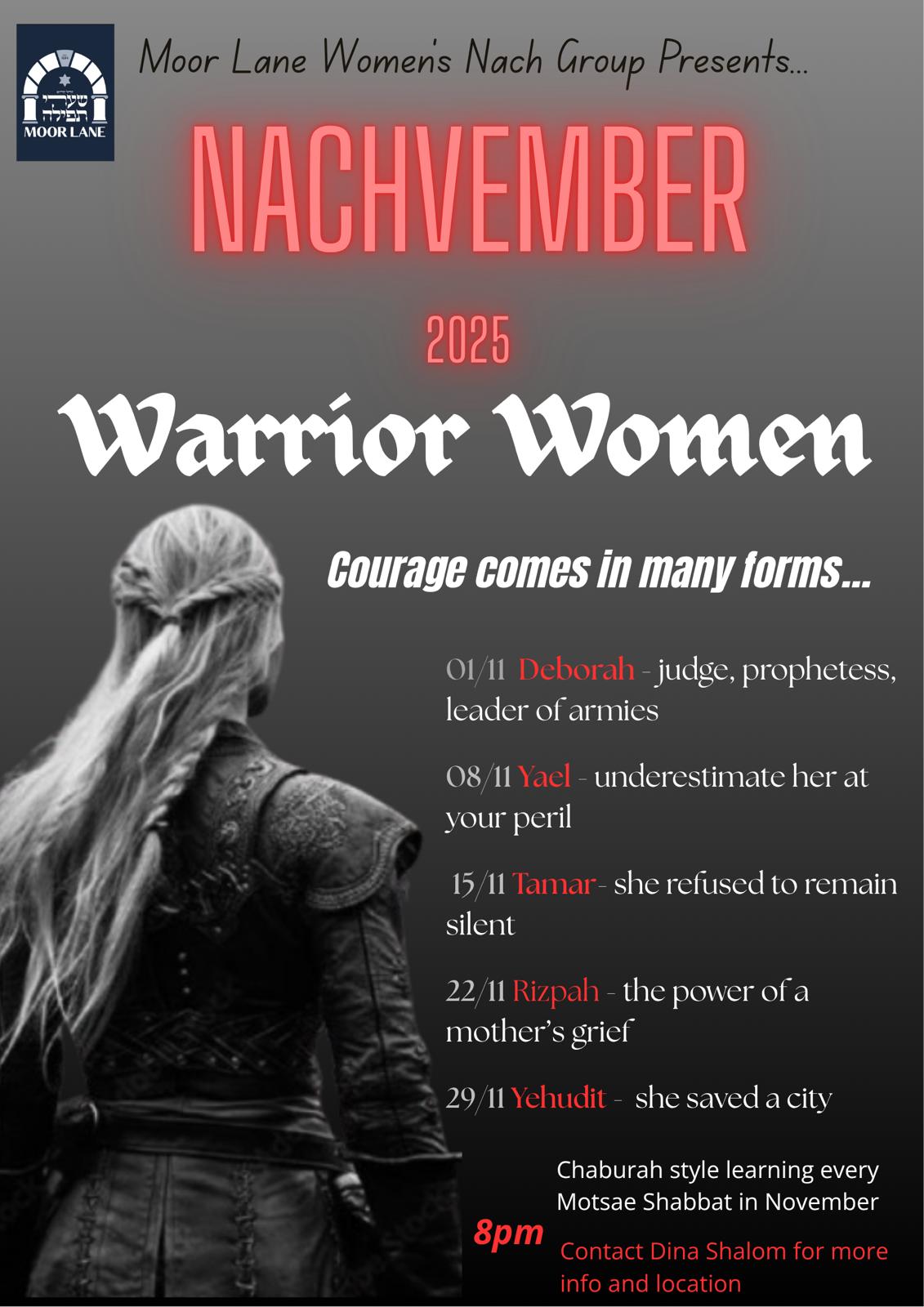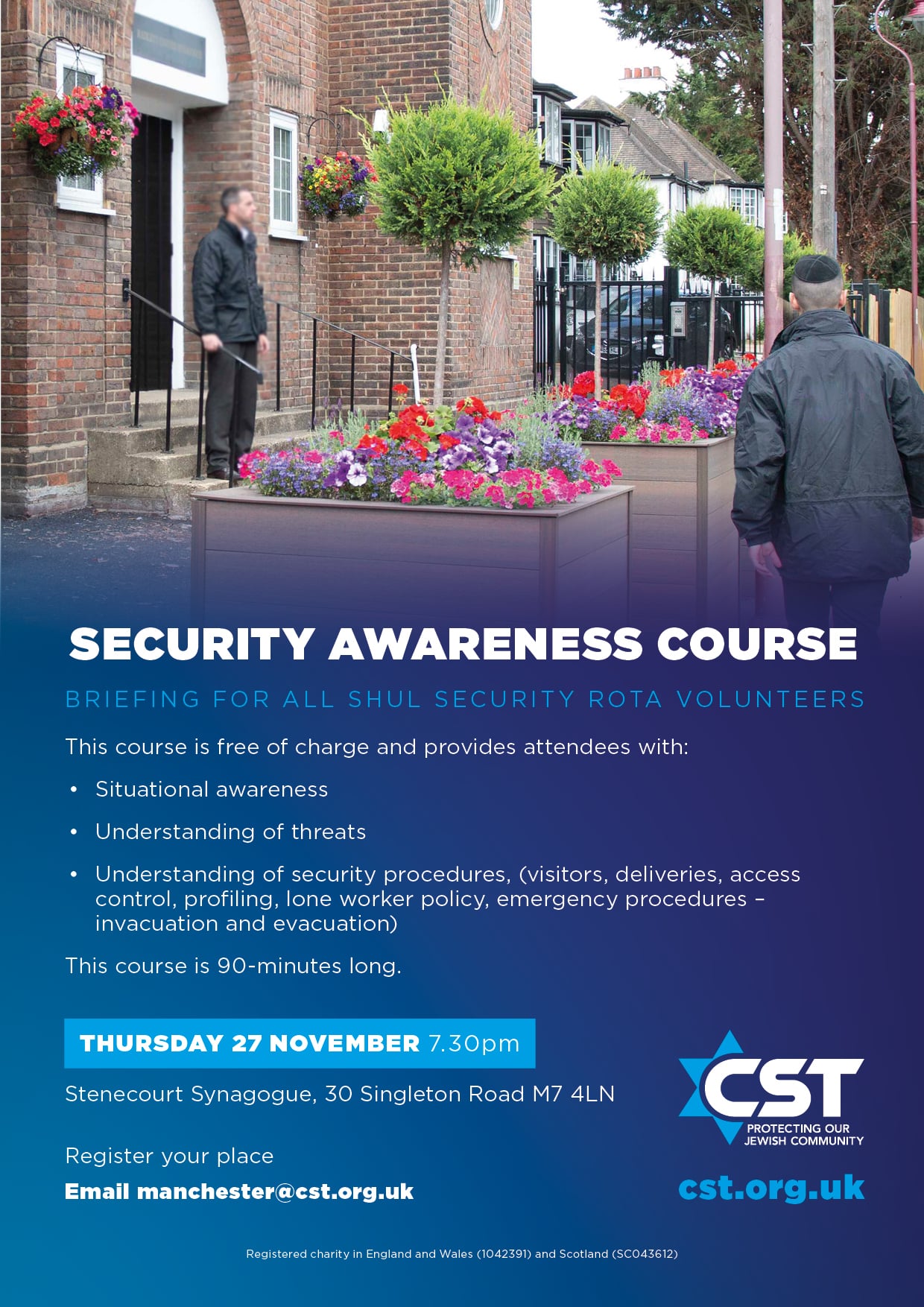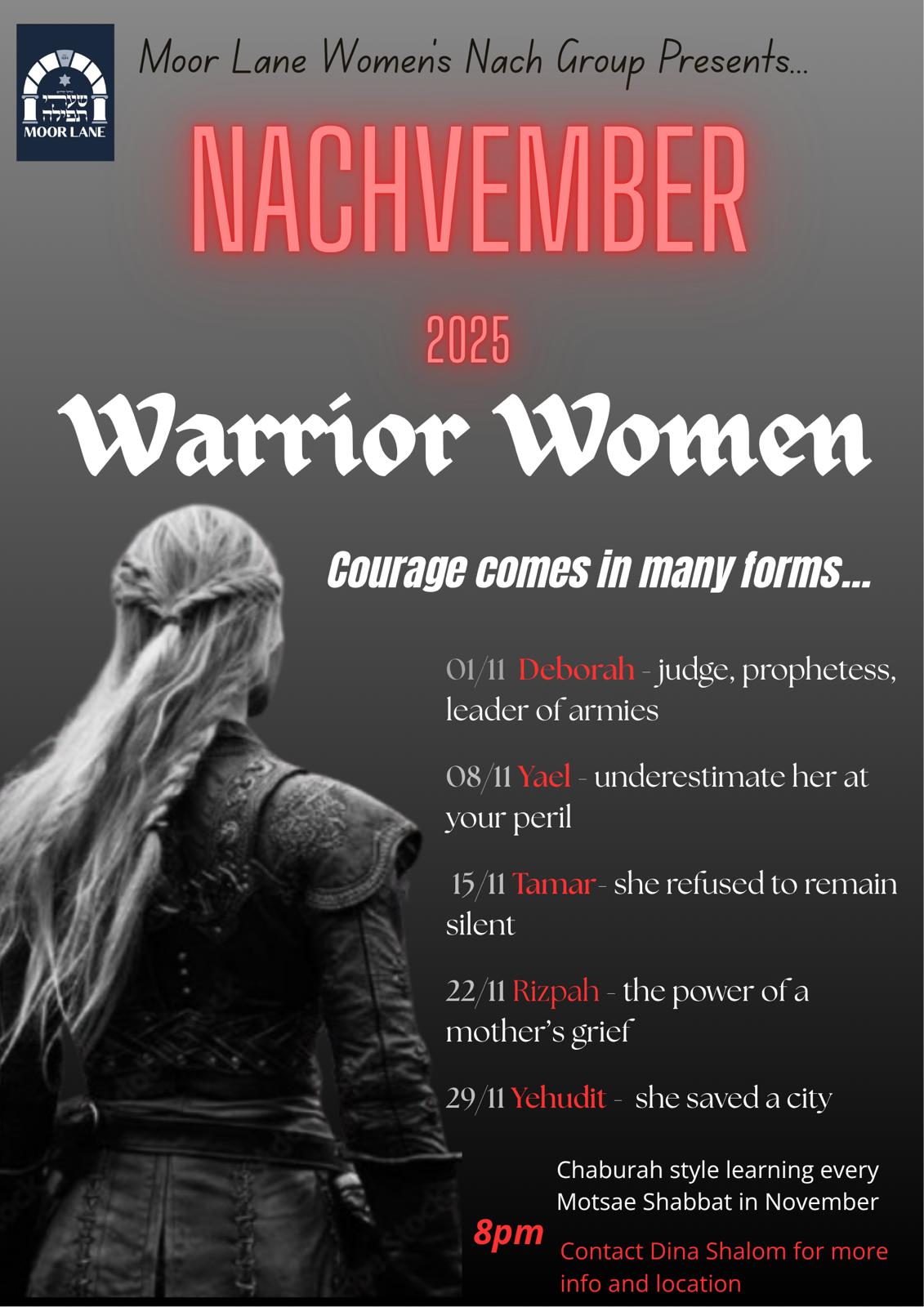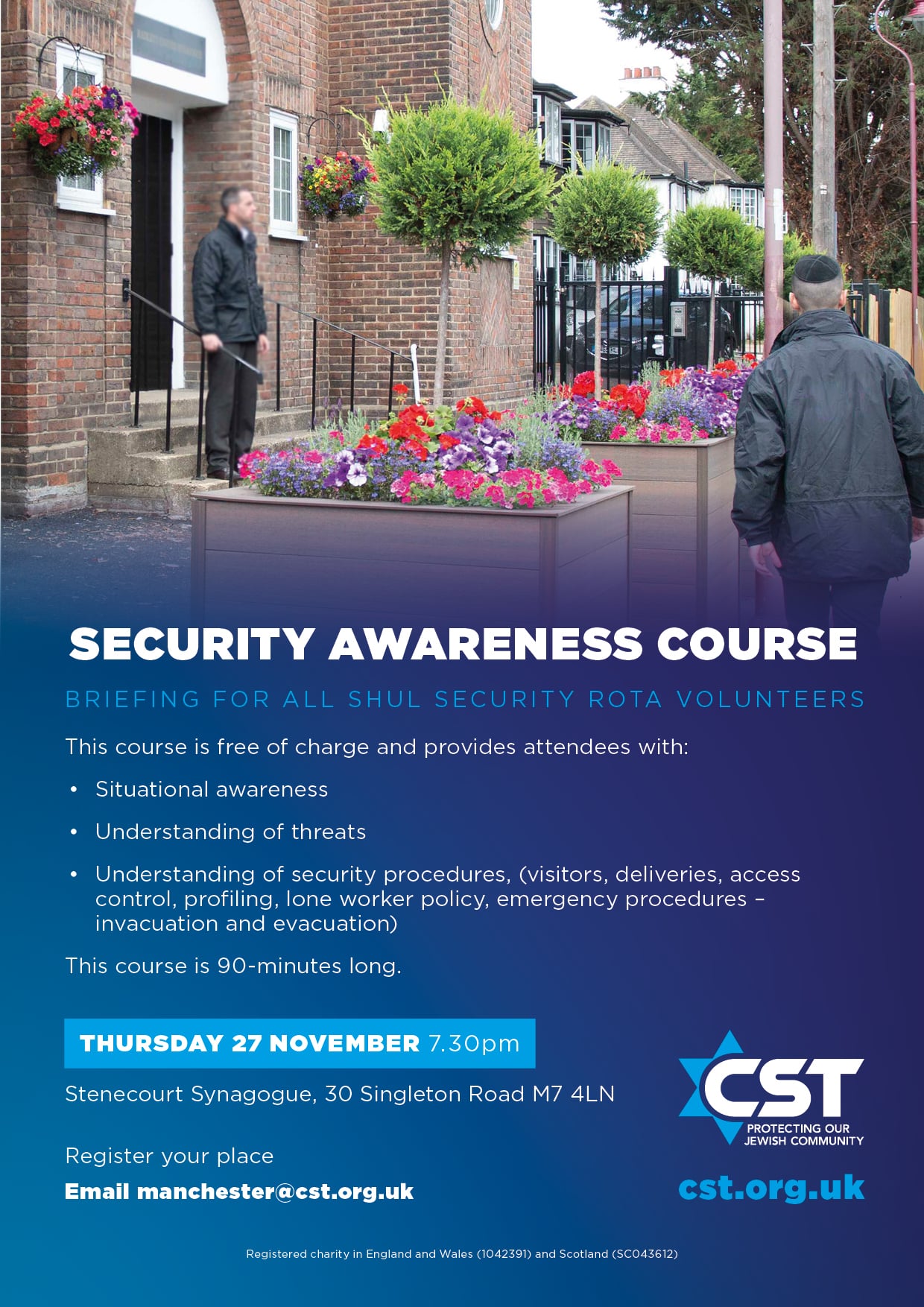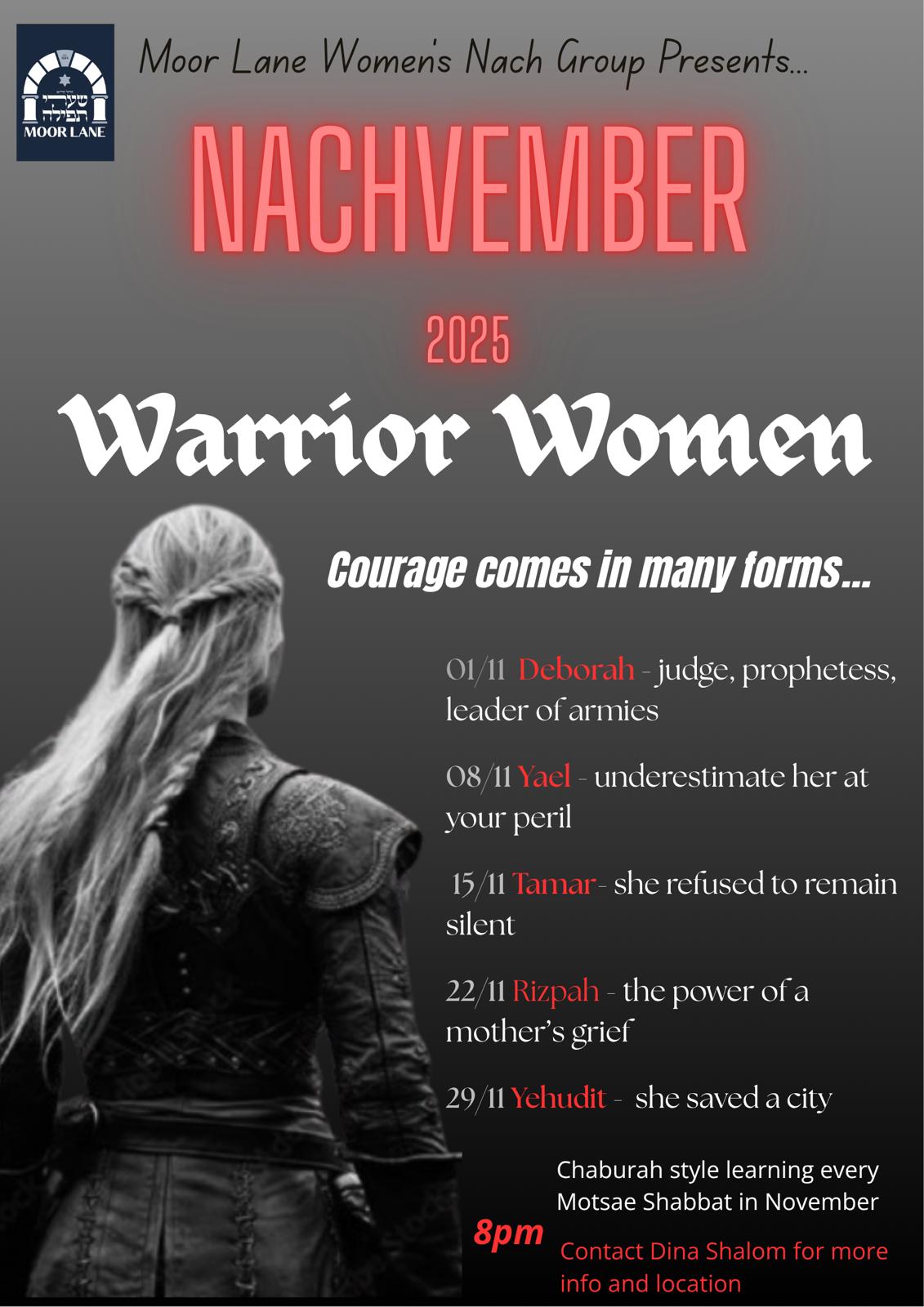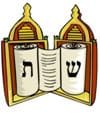


שבת מברכים
is
שבת מברכים
****

Below are the elected members of the
Executive & the Mahamad
Wishing them much Hatzlacha for the upcoming year
MEMBERS OF THE MAHAMAD 5786
a) Parnas Presidente: Mordechai Maman
b) Parnas Vice Presidente: Benjamin Hassan
c) Treasurer: Yehoshua Jacobs
d) Gabbai: Eli Shoshana
e) Hon. Secretary: Yehoshua Lewis
f) Ladies Committee Chair: Mrs. Elaine Marshall
g) Mahamad:
Paul Delmonte, Yehuda Marshall, David Bitan, Rafi Marshall,
Delegate Jewish Rep Council: Fabian Borocin (MM)
Delegate Manchester Shechita Board: Fabian Borocin (MM)
****
לוח זמני תפלה לחורף תשפ״ו
Winter Timetable 5786 – 2025/26
מוצאי שבת | ערבית (מוצ״ש) | שקיעה | מנחה שבת | סוף זמן קריאת שמע | הדלקת נרות | מנחה וקבלת שבת | תאריך | שבת פרשת |
Shabbat Ends | Arbit | Sunset | Minha | Shema before | Candle Lighting | Minha & Kabbalat Shabbat | Date | Parasha |
PM | PM | PM | PM | AM | PM | PM |
|
|
5:20 | 5:16 | 4:22 | 3:45 | 10:17 | 4:06 | 4:06 | 16/17 Jan | וארא (ש״מ) |
*****
🕯️WINTER TIMES FOR SHABBAT MORNING🕯️
שבת
קרבנות
8:45 am
הודו
9:00 am
*****

********
Hashem tells Moshe to inform the Jewish People that He is going to take them out of Egypt. However, the Jewish People do not listen. Hashem commands Moshe to go to Pharaoh and ask him to free the Jewish People. Although Aharon shows Pharaoh a sign by turning a staff into a snake, Pharaoh's magicians copy the sign, emboldening Pharaoh to refuse the request. Hashem punishes the Egyptians, sending plagues of blood and frogs, but the magicians copy these miracles on a smaller scale, again encouraging Pharaoh to be obstinate. After the plague of lice, Pharaoh's magicians concede that only Hashem could be performing these miracles.
Only the Egyptians, and not the Jews in Goshen, suffer during the plagues. The onslaught continues with wild animals, pestilence, boils and fiery hail. However, despite Moshe's offers to end the plagues if Pharaoh will let the Jewish People leave, Pharaoh continues to harden his heart and refuses.

שאלה: האם יכול כל אדם לשבח את הקדוש ברוך, בתפילה או בשירות ותשבחות?
וכל נוסח הברכות שתיקנו לנו אנשי כנסת הגדולה, כולו נעשה בחכמה מיד ה' עליהם השכיל, בידיעת שרשי הדברים, ופעולת כל תיבה ותיבה (מילה ומילה) בעולמות העליונים. וכפי שמבואר בגמרא (שם), כיצד למדו רבותינו מן הפסוקים את כל סדר הברכות. מנין שמזכירים את האבות בתחילת התפילה (אלהי אברהם אלהי יצחק ואלהי יעקב), שנאמר “הבו לה' בני אלים”, ומנין שאומרים את גבורותיו (האל הגדול הגיבור והנורא), שנאמר “הבו לה' כבוד שמו”. ושמו של ה' יתברך, הן גבורותיו הנראות בעינינו בהנהגת העולם. וכן על זה הדרך כמבואר בגמרא שם.
ולפיכך, אסור בהחלט לשנות מן המטבע (מהלשון הקבועה) שתיקנו חכמים בלשונות הברכות. ולכן, כל הברכות כולן, אסור לשנות בהן ולו מילה אחת, אלא יש לאמרן כפי תקנת חז”ל.
ומן האמור מבואר, שפשוט מאד שאסור לאדם להוסיף על שבחי ה' יתברך בלשון התפילה. שמלבד מה שמוסיף בחנם על שבחי ה' יתברך, שהוא דבר מגונה כמו שביארנו, עוד גרע בזה, שהרי הוא משנה מן המטבע שטבעו חכמים בלשונות הברכות.
ובהלכה הבאה נדון אם מותר להוסיף בשבחי ה' בשירות ותשבחות שאינן בלשון התפילה.
Praising Hashem Copiously Through Prayer
Question: May anyone praise Hashem through prayer or song?
Answer: In the first blessing of the Amida, the blessing of the “Fathers,” the Sages of Great Assembly enacted that one use the words “The great, mighty, and awesome G-d” in praise of Hashem. Our Sages taught (Berachot 33b) that were it not for the fact that the Moshe Rabbeinu himself used these phrases to praise Hashem, we would not be able to say so ourselves, for any praise we can offer to Hashem pale in comparison to his immeasurable greatness. However, since Moshe Rabbeinu used these phrases and he certainly did so by the word of Hashem, we may also use these same phrases to praise Hashem. The Gemara (Megillah 18a) states that it is inappropriate to lengthily speak the praises of Hashem, as the verse states, “Who shall speak the might of Hashem, shall proclaim all of His praises?” This means that only one who can proclaim all of Hashem’s praises may speak of Hashem’s might. This is a feat no human being can ever accomplish. Therefore, our Sages taught that one who speaks too lengthily about the praises of Hashem will be eradicated from the world, as the verse states, “Is anything conveyed when I speak? Can a person say anything while confused?”
The Gemara (ibid) recounts how once, someone served as Chazzan before Rabbi Chanina and exclaimed, “The great, mighty, awesome, powerful, vast, awe-inspiring, strong, fearless, steadfast, and honored G-d” to which Rabbi Chanina replied, “Have you concluded all the praises of your master?” He meant to chastise this individual for adding onto the praises the Sages incorporated into the prayer.
The text of the Amida prayer was enacted by the Members of the Great Assembly using the holy spirit and understanding the impact every word would have on the Upper Realms. Indeed, our Sages derived the words in the prayer from various verses in the Torah: “From where do we derive that one mentions the Patriarchs at the beginning of the prayer? As the verse states, ‘Ascribe to Hashem, children of the divine.’ From where do we derive that one mentions the might of Hashem? As the verse states, ‘Ascribe to Hashem the glory of His name.’”
It is therefore forbidden to deviate from the standardized text of prayer prescribed by our Sages; rather, one should recite the blessings of the Amida exactly as enacted by our Sages and not add even one more word.
Thus, one may not add to the praises of Hashem within the context of the blessings of the Amida, for doing so not only adds to the praises of Hashem unnecessarily, but it also deviates from the text minted by our Sages.
In the next Halacha, we shall, G-d-willing, discuss whether or not it is permissible to praise Hashem copiously outside the standard text of prayer.
